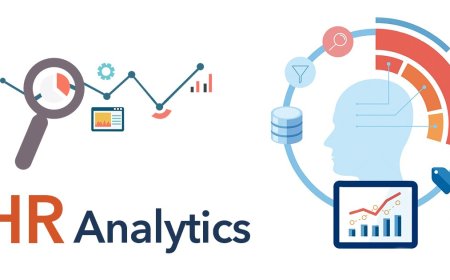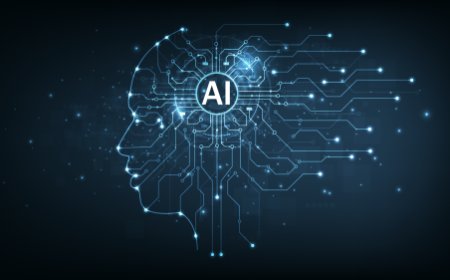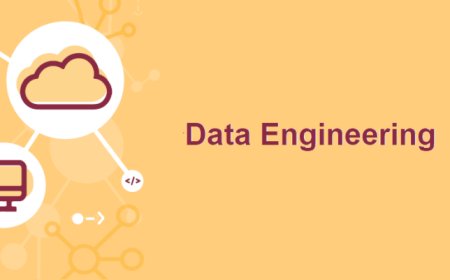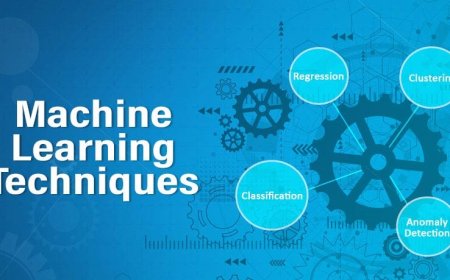Career Opportunities in Data Science
Explore exciting career opportunities in data science and embark on a data-driven journey to success. Learn about roles, skills, and pathways in this dynamic field.

In today's data-driven world, the demand for skilled data scientists continues to grow exponentially. With an ever-increasing volume of data being generated daily, organizations across various industries are relying on data science professionals to extract valuable insights, make informed decisions, and drive innovation. If you're looking for a dynamic and rewarding career, data science offers a multitude of opportunities.
Data Analyst
Data analysts are the unsung heroes of the data science world, playing a pivotal role in turning raw data into actionable insights. They are responsible for gathering, cleaning, and analyzing data, helping organizations make informed decisions and solving problems. In essence, data analysts are the detectives of the data world, seeking hidden patterns, trends, and valuable nuggets of information buried within datasets.
Data Gathering: One of the primary tasks of a data analyst is to collect relevant data from various sources, such as databases, spreadsheets, or APIs. This process often involves querying databases using SQL, extracting data from files, or pulling data from web sources. Data analysts must ensure data accuracy and completeness during this phase.
Data Cleaning: Raw data is rarely pristine; it often contains errors, inconsistencies, or missing values. Data analysts meticulously clean and preprocess the data, removing outliers, handling missing values, and standardizing formats. This step is critical to ensure the quality of the analysis that follows.
Exploratory Data Analysis (EDA): EDA is the heart of a data analyst's work. In this phase, analysts use various statistical and visualization techniques to understand the data's structure, distribution, and relationships between variables. EDA helps identify outliers, trends, and potential areas of interest.
Data Scientist
A data scientist is a highly skilled and sought-after professional in the field of data science. They are essentially the detectives of the digital age, tasked with uncovering hidden patterns, valuable insights, and actionable knowledge from vast and complex datasets. Data scientists leverage a blend of skills in mathematics, statistics, programming, and domain expertise to make sense of data and solve real-world problems across various industries.
One of the primary responsibilities of a data scientist is data analysis. They explore datasets to identify trends, anomalies, and correlations that can inform business decisions or provide a competitive advantage. Data scientists employ statistical methods, data visualization techniques, and data cleaning procedures to ensure that the data they work with is accurate, reliable, and ready for analysis.
Crucially, data scientists are proficient in programming languages like Python or R, which enable them to build predictive models and machine learning algorithms. These models are used to make predictions, classify data, or automate decision-making processes. Machine learning plays a central role in many data science projects, from recommendation systems for e-commerce to fraud detection in financial institutions.
Machine Learning Engineer
A Machine Learning Engineer is a specialized professional at the forefront of the data science field. They play a pivotal role in turning machine learning models and algorithms into practical, real-world solutions. This role sits at the intersection of software engineering and data science, requiring a unique blend of skills and expertise.
One of the primary responsibilities of a Machine Learning Engineer is to take the machine learning models developed by data scientists and research teams and translate them into scalable, production-ready applications. This entails a deep understanding of software development, coding proficiency, and the ability to optimize models for deployment in real-time environments.
Machine Learning Engineers are proficient in programming languages such as Python or R and are experts in machine learning libraries like TensorFlow, PyTorch, or sci-kit-learn. They work with data pipelines, ensuring that data flows smoothly from source to model and that the models can process large datasets efficiently.
Model deployment is a critical aspect of a Machine Learning Engineer's role. They are responsible for integrating machine learning algorithms into software applications, whether that be a recommendation system for an e-commerce platform, a fraud detection system for a financial institution, or a natural language processing (NLP) engine for a chatbot. This involves considerations for performance, scalability, and real-time processing, often utilizing cloud computing resources.
Data Engineer
A Data Engineer is a professional responsible for the design, construction, installation, and maintenance of the systems and infrastructure that allow for the collection, storage, and retrieval of data. Data Engineers play a critical role in ensuring that data is available, accessible, and of high quality for use by data scientists, analysts, and other stakeholders within an organization. Here are some key aspects of the role of a Data Engineer:
-
Data Pipeline Design and Implementation: Data Engineers design and build data pipelines, which are a series of processes that move data from various sources to a destination where it can be stored and analyzed. These pipelines often involve data extraction, transformation, and loading (ETL) processes. The goal is to ensure that data is collected, cleaned, and prepared for analysis efficiently.
-
Data Storage and Management: Data Engineers are responsible for selecting and implementing the appropriate data storage solutions. This can include relational databases (e.g., SQL databases), NoSQL databases (e.g., MongoDB, Cassandra), distributed storage systems (e.g., Hadoop HDFS), and cloud-based data storage solutions (e.g., Amazon S3, Azure Data Lake Storage). They must also ensure data security, backup, and disaster recovery.
-
Data Integration: Data Engineers work on integrating data from various sources, which can include databases, APIs, log files, and more. They need to understand how different data sources work and create processes to consolidate and standardize data.
-
Data Quality and Data Cleaning: Ensuring data quality is a critical aspect of a Data Engineer's role. They implement data validation and cleaning procedures to identify and rectify issues such as missing values, duplicates, inconsistencies, and outliers.
-
Performance Optimization: Data Engineers must optimize data pipelines and storage systems for performance and scalability. This involves tuning databases, improving query performance, and ensuring that data pipelines can handle increasing volumes of data efficiently.
Business Intelligence (BI) Analyst
A Business Intelligence (BI) Analyst is a professional responsible for turning raw data into actionable insights to support business decision-making. They specialize in creating visually appealing and informative reports, dashboards, and data visualizations using BI tools such as Tableau or Power BI. BI analysts work closely with stakeholders to understand their data needs and design solutions that help organizations monitor key performance indicators (KPIs), track trends, and identify opportunities for improvement.
Their role is crucial in transforming complex data into easily understandable information that aids executives and managers in making informed choices to drive business growth and efficiency. Effective communication skills and a strong grasp of data visualization techniques are essential for BI analysts to convey data-driven insights effectively to non-technical stakeholders.
Data Science Manager
A Data Science Manager is a key leadership role within an organization's data science team. They are responsible for overseeing and guiding the work of data scientists and data analysts to ensure the successful execution of data-driven projects. Data Science Managers play a pivotal role in defining the strategic direction of data initiatives, setting project goals, and allocating resources effectively.
They often collaborate closely with other departments, translating business objectives into data science projects that deliver actionable insights. Strong leadership, project management skills, and a deep understanding of data science concepts are essential for success in this role. Data Science Managers help bridge the gap between technical expertise and business impact, making data-driven decisions an integral part of an organization's strategy.
The field of data science offers a wide range of career opportunities, from entry-level positions like data analyst to advanced roles like data scientist and data science manager. The demand for data science professionals continues to grow, making it an attractive and lucrative career path. Whether you're passionate about crunching numbers, solving complex problems, or driving business decisions, there's a data science role that suits your interests and skills. As you embark on your data science journey, continuous learning and staying updated with the latest tools and techniques will be key to your success in this dynamic field.










































